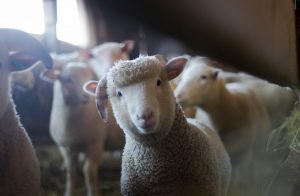In the midst of these tough times, many of us realized the importance and advantages of having instant access to food and profitable resources. Though the lockdowns are over, and we’re back to grocery shopping almost as normally as before, we’re still not free from the economic effects of the pandemic. As such, we’ve been spending more than we used to, and from a decreased budget at that.
For that reason, raising livestock in your backyard might be worth considering. If the space is vast, you can raise different animals or a herd of one. They’re good for profit, free food, or as pets if you adore farm animals.
But before bringing livestock into your backyard, there is a couple of things you need to know first. Not all of them are easy to take care of, and some of them can demand too much of your time. So here is a little introduction to backyard farming:
Things to Consider Before Raising Livestock
Local zoning laws will be your largest barricade to raising livestock. Though most urban areas have now allowed small farms and livestock within city limits, there are still restrictions, which you must research. Chickens are most likely allowed, but there are regulations on how you can sell their eggs.
Moreover, local zoning laws also limit the number and kind of livestock you can raise. And even if you follow all of them, it doesn’t automatically mean that you won’t face issues anymore. For one thing, your neighbors might not be pleased with your pigs pervading the air with the odor of their waste, or your horses neighing so early in the morning.
Overall, the things you need to consider depending on the exact animal you plan on raising. That’s why it’s crucial to do your research first and to assess if your backyard is suitable enough for livestock.
Livestock That Can Thrive in Your Backyard
1. Quail
Since chickens can cause a disturbance with their noisy squawks and crows, consider quails instead. Their coos are soft, and they won’t need as much space as chickens do.
The best breed of quail to raise depends on your purpose and your proximity to your neighbors. Coturnix, for example, is the most popular backyard quail, and a lower-maintenance type, since each bird only needs 1 square foot of space. But they can be noisy, unlike other breeds.
If you want to profit off your quail, a Georgia Giant will be nice, as they lay over a hundred eggs each year. But if you just want a pretty quail as a pet, choose a Blue-scale. Just note that they need sandy soil to thrive.

2. Alpaca
Alpacas are adorable, and their wool is soft and fluffy, or soft and long. They’re easy to take care of, with their diet only being hay or grains. Just provide them with shelter, and shear them at least once a year to keep them healthy.
3. Duck
There are several duck breeds as well, and most of them are quiet, calm, and look adorable. They’re also good for profit, especially a Khaki Campbell, which is a superior egg producer, but they can be fun pets too.
Indian Runner, in particular, can be entertaining to raise because they stand like penguins. Muscovy, meanwhile, is a large breed, but very quiet, which can be ideal for smaller neighborhoods. Mallard is a good choice too, with their beauty and their smaller size.
4. Honey Bee
The idea of having a colony of bees in your backyard can be intimidating, but under the right conditions, they won’t likely bother you. Doing research is highly crucial before raising bees. You may also need the assistance of an experienced beekeeper, especially before harvesting honey.
Beekeeping also requires a handful of equipment and pesticides, an example of the latter being a varroa mite treatment and control so that your colony will be safe from predatory varroa mites. Woodenware (for the beehive), protective gloves and veil, smoker, and hive tools, are the equipment you need.
These unusual animals will certainly liven up your backyard and give you security during challenging times. If you don’t want to raise your ducks and quails for slaughter, that’s totally fine too. Giving them a loving home is just as rewarding and fulfilling.

